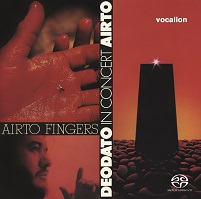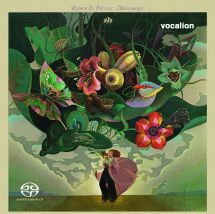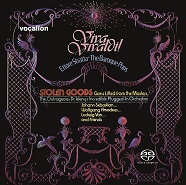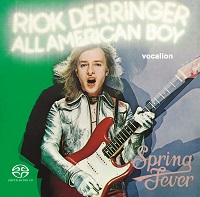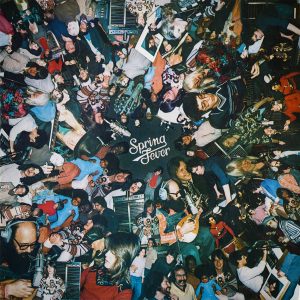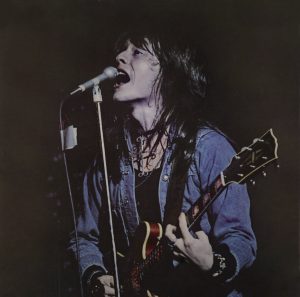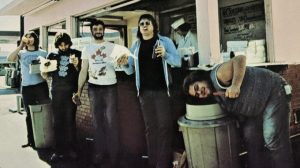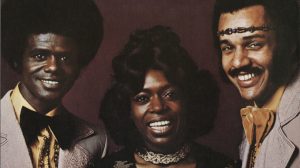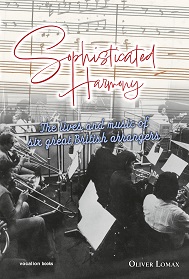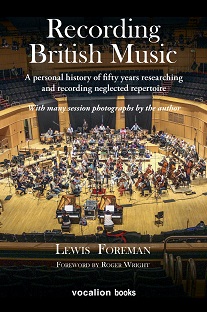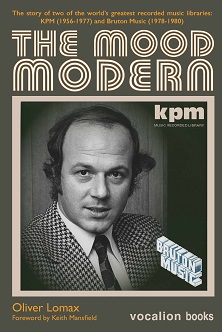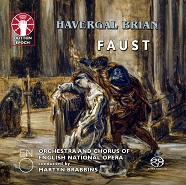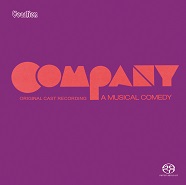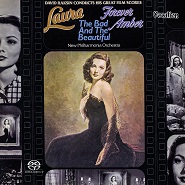Vocalion’s April 2018 release once again sees a widening of the scope of our industry-leading quadraphonic SACD reissue programme. Both rock and disco join our SACD release slate for the first time, with six ’70s classics (across three hybrid multi-channel SACDs) making their high-resolution bow in both stereo and quad. And for the jazz-fusion enthusiast, we also have a stereo-only reissue of a hidden gem from one of the genre’s standard bearers.
Headlining this month’s release is a disc compiling the debut and sophomore solo albums from multi-talented guitarist, singer, songwriter and producer Rick Derringer, All American Boy and Spring Fever. When All American Boy was released in 1973, Derringer was only 25, but already an industry veteran of more than ten years – aged 16 with his group The McCoys he’d had a No. 1 hit with Hang On Sloopy, and the years following his professional apprenticeship had seen him playing with and producing both Johnny and Edgar Winter. All American Boy is best known for the hit single (and Derringer’s signature tune) Rock and Roll, Hoochie Koo, but the remainder of the album is consistently strong, showcasing Derringer’s talent across a range of styles from foot stompers (Teenage Love Affair) to country rockers (Cheap Perfume) to throwback pop (It’s Raining). Co-produced with frequent Eagles collaborator Bill Szymczyk and featuring contributions from Edgar Winter, Captain Beyond drummer Bobby Caldwell and Joe Walsh with his Barnstorm band, All American Boy is widely considered to be Derringer’s highpoint as a solo artist.
Derringer was working at breakneck pace in the year following the release of All American Boy. In addition to an increasing profile as a session guitarist, which saw him playing on records for the likes of Steely Dan and Todd Rundgren, Derringer also found time to produce and play on both Johnny Winter’s Saints & Sinners and the Edgar Winter Group’s Shock Treatment albums. As a member of Winter’s group, he’d embark on a colossal five-month, seventy-date tour in 1974 to promote Shock Treatment, and his extended road sojourn would have a powerful effect on his second solo effort, 1975’s Spring Fever. A decidedly more arena-rock-oriented affair than All American Boy (especially on tracks like the anthemic Don’t Ever Say Goodbye), Spring Fever saw Derringer backed by a core rhythm section comprised of Utopia bassist John Siegler, Frampton’s Camel drummer John Siomos and his old compatriot Edgar Winter on keyboards. It also featured guest appearances from the likes of the New York Dolls’ David Johansen and Return to Forever’s Chick Corea. While Spring Fever failed to replicate All American Boy’s commercial success (its only single, a cod-reggae remake of Hang on Sloopy, was a minor chart hit) the album redeems itself in its deeper cuts. Amongst them are a swaggering cover of Rufus Thomas’ Walking the Dog and Derringer’s own autobiographical Skyscraper Blues (both of which allow him to show off his blues chops), while the criminally underrated Aerosmithesque rocker He Needs Some Answers is so catchy that the title may as well be questioning why the song was never released as a single.
Canadian rock trailblazers The Guess Who are spotlighted on a disc that unites arguably their two finest latter-era albums, 1973’s #10 and 1974’s Road Food. After toiling in semi-obscurity for most of the ’60s, the group would hook up with producer Jack Richardson and sign with RCA records in 1968. Emerging from the unlikely musical mecca of Winnipeg, Manitoba, they’d release a string of Canadian and US hit singles through 1969 and 1970 that included These Eyes, Laughing, Undun, No Time and American Woman. However, just as American Woman was in the midst of its three-week run at No. 1 in the US charts in May 1970, tensions within the group boiled over and lead guitarist Randy Bachman quit the band. Vocalist and keyboardist Burton Cummings, bassist Jim Kale and drummer Garry Peterson regrouped quickly, enlisting hometown guitarists Kurt Winter and Greg Leskiw to replace Bachman, scoring big later the same year with Share the Land. With the 1972 additions of guitarist Donnie McDougall (who replaced a departing Greg Leskiw) and bassist Bill Wallace (who replaced a departing Jim Kale) the band solidified what many fans and critics feel is their finest lineup. Unfortunately, that pedigree was no guarantor of success, as the band found out with the January 1973 release of Artificial Paradise, which failed even to crack the Top 100 US LP chart.
Recorded in the immediate wake of Artificial Paradise’s disappointment (and released just five months later), #10 acts as something of a diary for how the group was feeling at the time, chronicling their collective exhaustion, disappointment and frustration. In contrast to its weary lyrical tone however, #10 finds a band at its peak both instrumentally and vocally, battle-hardened from nearly a year of relentless touring. From tracks like the frenetic Musicione (a remarkable combination of searing lead guitar and gorgeous vocal harmonies) and the epic rocker Cardboard Empire to country-inflected gems like Lie Down and Take It Off My Shoulders, #10 boasts a depth in both songwriting and playing that the band’s earlier pop hits would struggle to match.
Released in April 1974, Road Food covered many of the same topics as #10, but it also showed a realisation amongst the band that it didn’t have to entirely abandon its AM pop roots in pursuit of FM album credibility. The result was not only a more varied album, but also a more commercially successful one. The album’s first single, Star Baby, was a moderate hit, and its second single, Clap for The Wolfman (featuring a vocal cameo from legendary DJ Wolfman Jack) reached No. 6 in the US charts, making it the group’s first US Top 10 hit since 1970. Counterbalancing the album’s radio-friendly singles are some of the band’s best deeper album tracks, from the ominous One Way Road to Hell to the barbershop-meets-jazz (with a twist) of Straighten Out to the epic seven-minute album closer, The Ballad of The Last Five Years.
Pop-soul trio The Hues Corporation are the subject of this month’s third disc, which pairs two of their most successful albums for RCA, 1974’s Rockin’ Soul and 1975’s Love Corporation. After honing their craft as a live act (primarily on the Tahoe-Vegas lounge circuit) for the better part of five years, the group found its way on to RCA’s radar after appearing in the 1972 Blaxploitation cult classic Blacula and featuring on its accompanying soundtrack. Seen by the label as something of a spiritual successor to another of its acts, The Friends of Distinction (who were in the process of breaking up at the time), RCA went as far as pairing the group with producer John Florez, who’d helmed the Friends’ hits Grazing in the Grass and Going in Circles. Their debut album, 1973’s Freedom for the Stallion, yielded a moderate hit with its eponymous title track, but when a follow-up single stiffed, the label was ready to give up on the album – and possibly the group. That is, until word filtered back to RCA from their A&R reps in New York that another track from the album, Rock the Boat, had become a sensation in the city’s underground dance clubs, or “discotheques” as they were increasingly becoming known. With this club success in mind (and anticipating radio play for the song), Florez went back into the studio and remixed Rock the Boat, enhancing the bass drum and bass guitar, and making the other rhythm instruments sound bigger and snappier – in the process creating one of the first of what would later become known as disco remixes. Released as a single with little fanfare in February 1974, the remix bubbled under for a couple of months, but the summer of 1974 saw disco music make its move from underground phenomenon to mainstream sensation, and Rock the Boat rode that wave right to the top of the pop charts in July. Selling a staggering two million copies before the year was halfway through, the song would become the first disco song ever to top the US pop charts.
In the aftermath of Rock the Boat’s worldwide success, RCA would issue The Hues Corporation’s sophomore LP, Rockin’ Soul. Released in November 1974, it would produce another Top 20 pop hit for the group with its dancefloor-oriented eponymous title track. The album also features New Orleans R&B legend Allen Toussaint’s I’ll Take a Melody, the swinging Barry White ballad How I Wish We Could Do It Again, and Ease on Down the Road (from the hit Broadway musical The Wiz), along with five other originals from group founder/manager (and Rock the Boat writer) Wally Holmes. RCA also wisely included John Florez’s remix of Rock the Boat on Rockin’ Soul – while it may have been unusual to have the same studio recording on two consecutive albums, Florez’s remix was the hit version that most listeners were familiar with, and from a commercial standpoint there was no reason not to include it.
1975’s Love Corporation found the group working with wunderkind producer David Kershenbaum, who’d go on to produce hits for Joan Baez, Joe Jackson and Duran Duran amongst others. The swirling strings and syncopated hi-hat of its Philadelphia soul-influenced title track would net the group another moderate hit, and much like that song, the influence of Philly soul (which was dominating the R&B charts at the time) is felt strongly throughout the rest of the album. Other standout tracks include the Holmes original When You Look Down the Road, which features a gorgeous three-part vocal harmony set against a slinky funk backdrop, and Danny Moore’s Follow the Spirit, which recalls some of the O’Jays work from the same period. Despite the breezy nature of some of the songs on these two albums, the musical accompaniment is top-notch. Immaculately produced and arranged, they feature a cadre of some of the decade’s finest studio talent, including Larry Carlton, Joe Sample and Wilton Felder of the Crusaders, future Toto keyboardist David Paich, drummers Jim Gordon and Ed Greene, as well as sax players Ernie Watts and Tom Scott.
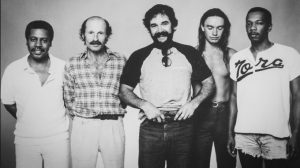
The Weather Report “Night Passage” lineup (1980) L-R: Wayne Shorter, Joe Zawinul, Peter Erskine, Jaco Pastorius, Robert Thomas, Jr.
While it may seem like a stretch to suggest that a Grammy-nominated album that made it to No. 2 in the Billboard Jazz LPs chart is underrated, in the highlight-strewn fifteen-year recording career of Weather Report, 1980’s Night Passage is exactly that. With an approach that emphasised collective improvisation and continuous rhythmic movement over individual soloists, the avant-garde explorations of the group’s eponymous 1971 debut and 1972’s I Sing the Body Electric fulfilled the promise of Miles Davis’s Bitches Brew fusion innovations, arguably more so than Davis’s own subsequent albums. A mid-decade move toward heavy funk on albums like Sweetnighter, Mysterious Traveller and Tale Spinnin’ put the band not only at the vanguard of the fusion movement, but also in the enviable position of being critically lauded and commercially successful.
With a reputation for scintillating band interplay, the group was almost as well known for a lineup that was in a state of constant flux, with principals Wayne Shorter (sax) and Joe Zawinul (keyboards) joined by a revolving cast of some of jazz’s best players. The band would see bassists Miroslav Vitouš and Alphonso Johnson, and drummers including Alphonse Mouzon and Chester Thompson, pass through its ranks across its first half-dozen studio albums, none of which featured the same lineup twice. The recruitment of fretless electric bass virtuoso Jaco Pastorius in 1976 ushered in the group’s most successful period, beginning with 1977’s platinum-selling Heavy Weather, which yielded a genuine radio-friendly hit single (and jazz standard) in Birdland.
The addition of Pastorius was also the first building block in what would become the group’s longest lasting (and most highly regarded) lineup, a process that was completed when drummer Peter Erskine joined the band for the tour supporting 1978’s Mr. Gone. After years of receiving consistently glowing reviews for their albums, Mr. Gone saw the band coming in for some condemnation, with some reviewers (most notably DownBeat, in a scathing 1-star review) suggesting that the album’s more highly orchestrated (and heavily overdubbed) sound had robbed it of its excitement. The criticism seemed to light a fire under the band to reassert its dominance as an improvisational unit – the first result was 1979’s Grammy-winning 8:30, a live album culled from a series of incendiary shows at the end of the Mr. Gone tour.
The recording of 8:30 proved to be such a positive experience for the group that when it came time to record an album of new material in 1980, they elected to pursue a hybrid approach that leveraged the intensity of their live performances with the sonic possibilities of a studio setting. Expanded to a quintet for the first time since 1977 by the addition of jazz-trained hand drummer Robert Thomas, Jr., the band honed their new material on the road for nearly six months before entering LA’s The Complex studios, where one of its soundstages was transformed into an impromptu concert venue. On 12 and 13 July 1980, Weather Report would play two shows each night in front of an invited audience of 250, with the best of those performances culled to produce Night Passage. The layers of overdubs from the band’s previous two albums are supplanted by a much more immediate improv-centric approach, from the shuffle groove of Zawinul’s bop-influenced eponymous album-opener to the aptly named Fast City, where both he and Shorter take remarkable solos. Speaking of Shorter, Night Passage finds him at the forefront of the group possibly more than on any other album, his deft touch on the sax evident throughout, including on the gauzy ballad Dream Clock and an energetic cover of Duke Ellington’s Rockin’ in Rhythm. Pastorius is also given ample room to shine, turning in his finest composition in the meditative waltz ballad Three Views of a Secret, not to mention a staggering bass solo in the middle of Port of Entry. Although Night Passage wasn’t this lineup’s swansong (they’d record one more album in the midst of disintegrating), it remains a high-water mark in their vast discography.
Michael J. Dutton has meticulously remastered all four discs that make up this month’s release from the original stereo and quadraphonic master tapes, maintaining their original tonality and dynamic range for optimal sound quality. Each disc is also accompanied by extensive, newly-written liner notes.
This release marks the worldwide high-resolution debut of the stereo mixes of all seven of these albums, and the first time that the Derringer, Guess Who and Hues Corporation quad mixes (which have been out of print since the late ’70s) have been available in any digital format.
David Zimmerman, Toronto, 2018



 Login Status
Login Status 